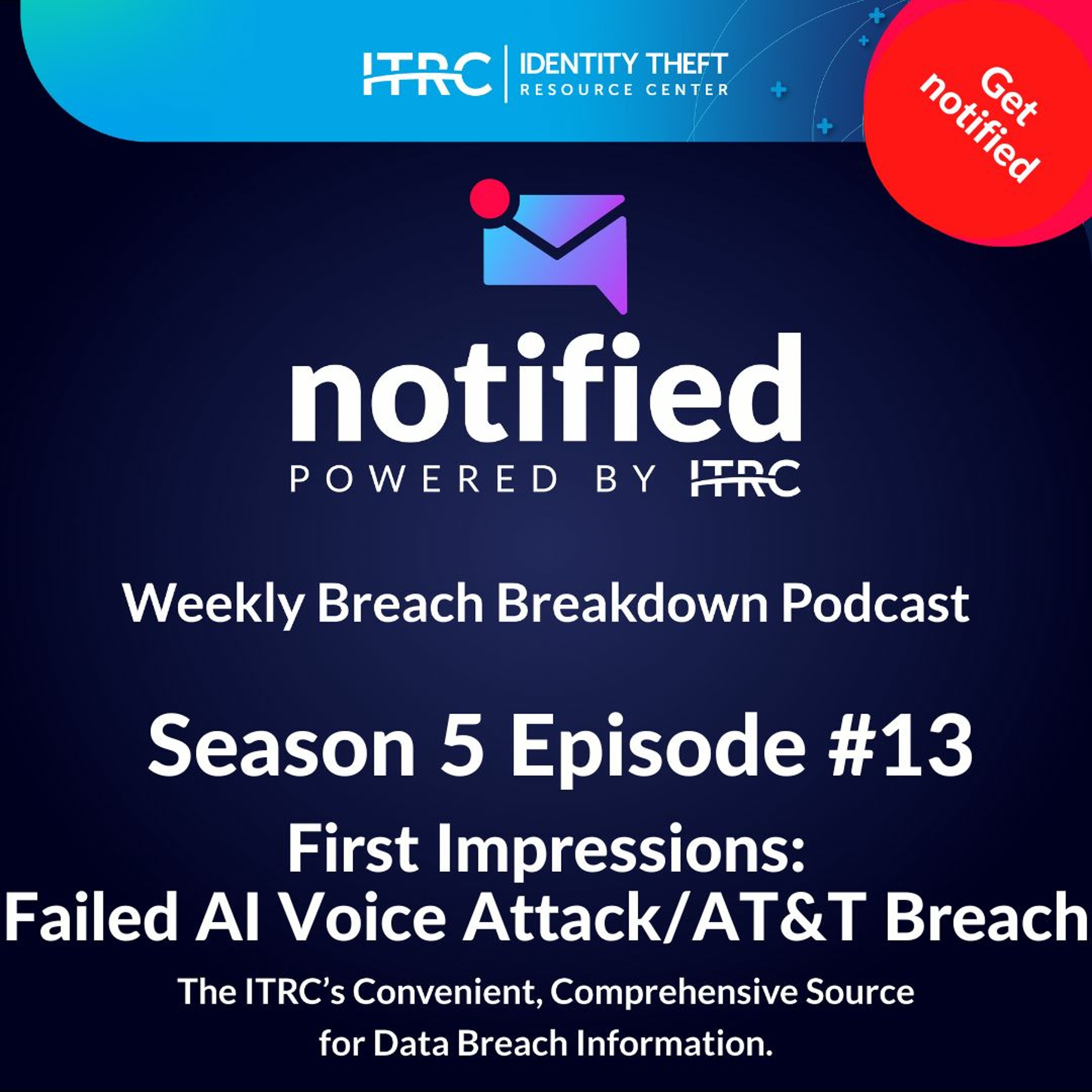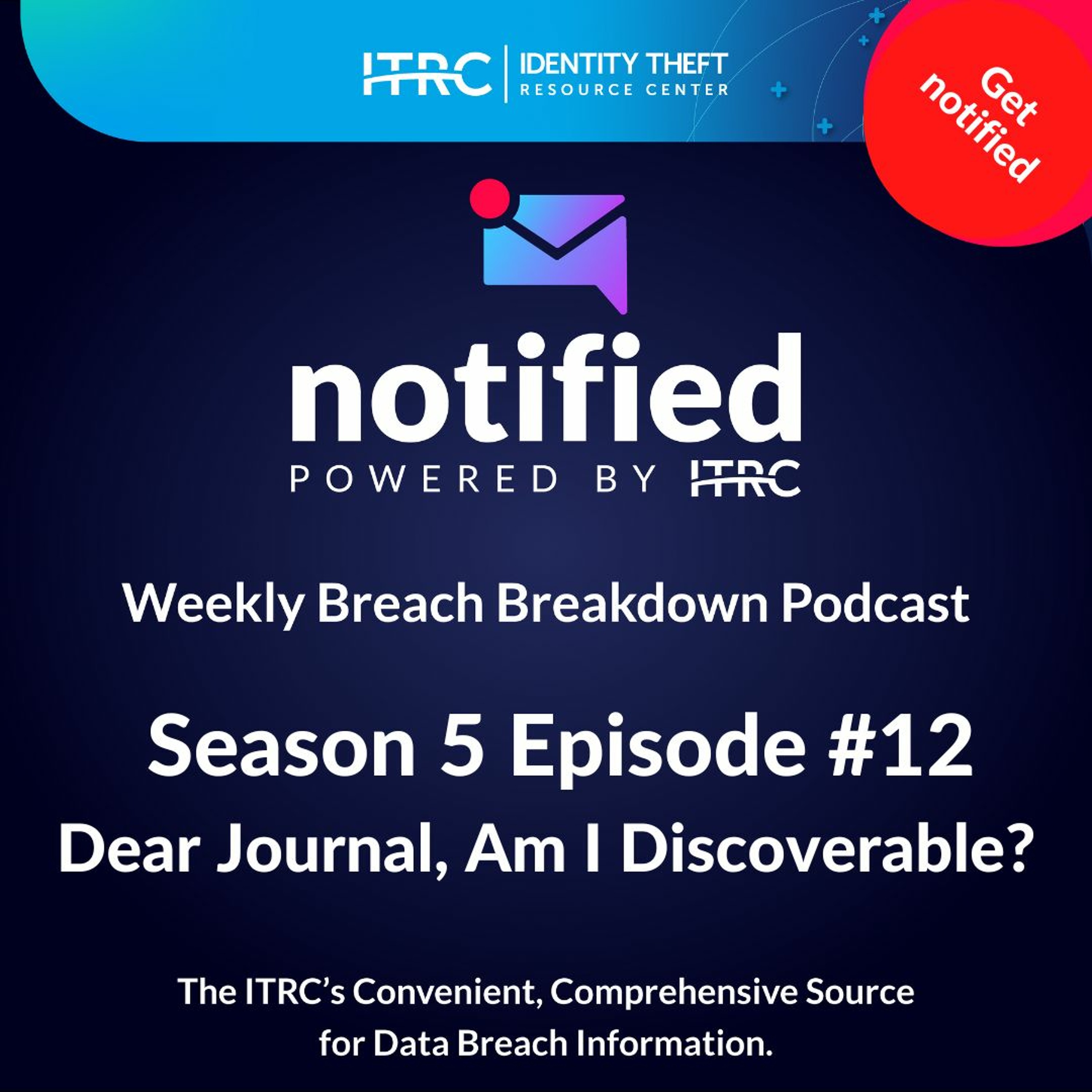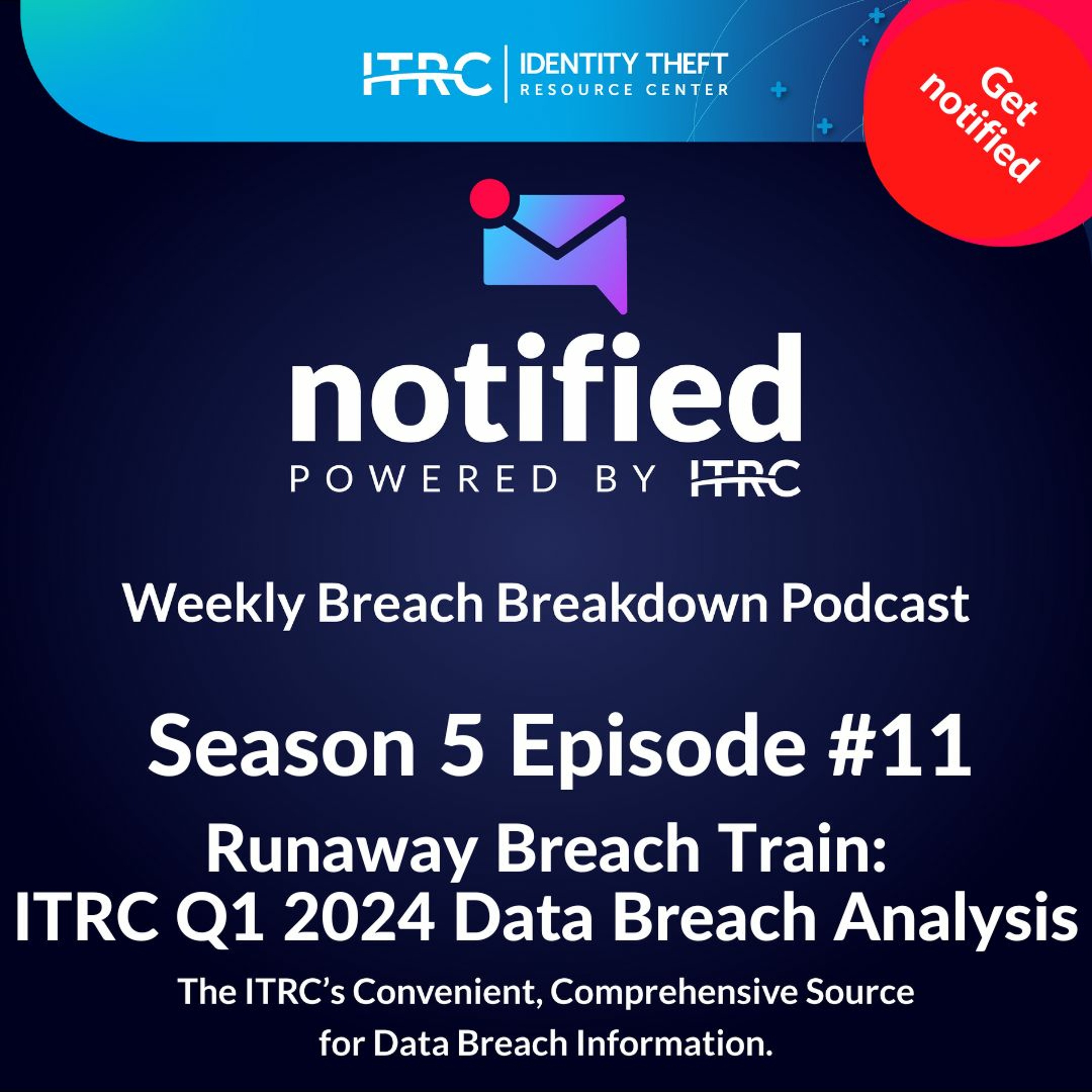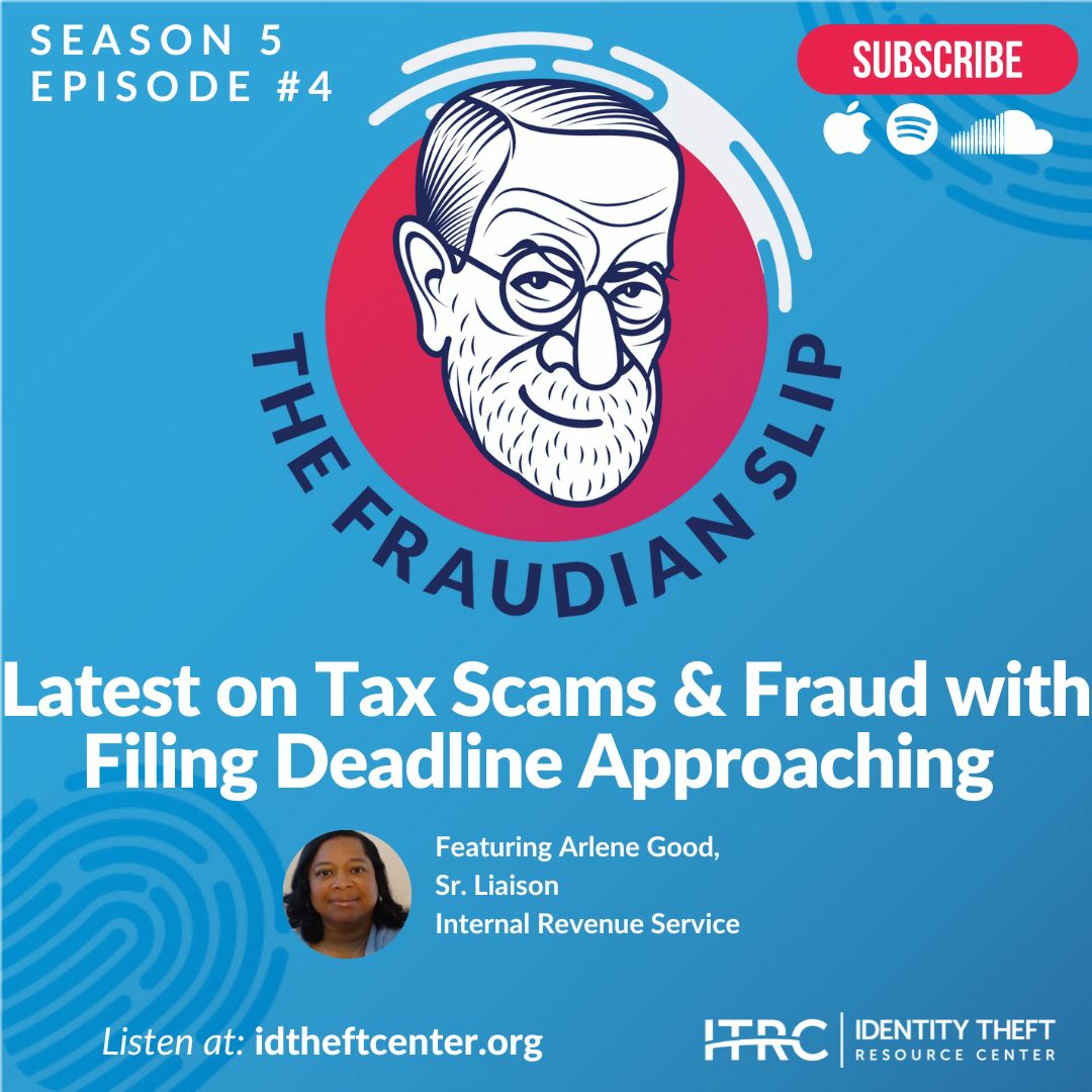I’m James Lee, the COO of the ITRC - thanks for joining us today. April 15th is not just the deadline for filing federal income taxes for individuals, it is a driving force each year for professional identity criminals and tax cheats alike. With about 10 days to file this year’s tax returns or an extension, it’s not too late to become of victim of tax-related identity fraud or avoid becoming one.
Show Notes
Follow on LinkedIn: www.linkedin.com/company/idtheftcenter/
Follow on X: twitter.com/IDTheftCenter
Show Transcript
Welcome to The Fraudian Slip, the Identity Theft Resource Center’s (ITRC) podcast, where we talk about all things identity compromise, crime and fraud that impact people and businesses. Listen on Apple, Google, Spotify, SoundCloud, Audible and Amazon now. This month’s episode discusses tax scams and fraud with the Internal Revenue Service (IRS).
Long-time followers of this and our sister podcast know that we are unrepentant fans of Shakespeare. Since playwrights get to take creative license, we are sure Will would change the warning he made famous in Julius Caesar to “Beware the ides of April.”
April 15 is not just the deadline for filing federal income taxes for individuals; it is a driving force each year for professional identity criminals and tax cheats alike. With about ten days to file this year’s tax returns or an extension, it’s not too late to become a victim of tax-related identity fraud or avoid becoming one.
However, identity-related tax fraud is not limited to January to April; tax scams and IRS impersonation scams happen all year. Here to talk about all the ways criminals manage to steal money and trust each year from taxpayers is Arlene Good, a Sr. Liaison with the IRS and the ITRC’s President and CEO, Eva Velasquez.
We talked with Arlene Good about the following:
- The IRS has worked hard to address identity issues, and it has worked. Talk about what you’ve done and the results you’ve seen.
- We see this all the time – someone says the IRS called them or texted them and ultimately asked for payment of taxes with a gift card or cryptocurrency. How does the IRS contact taxpayers, and what do they need to do to prove to themselves it’s the IRS on the other end of any communication?
- We’ve talked about a couple of common tax-related issues. You have a list called the Dirty Dozen. What’s that?
- What should someone do if they suspect they’ve been targeted for a tax-related identity crime or fallen for one of the many tax scams?
We talked with Eva Velasquez about the following:
- What’s the current state of play regarding tax identity fraud as described by victims who contact the ITRC? How has that changed over time?
- Fraudulent tax returns are only one part of the identity fraud related to the IRS. What other kinds of scams do we see?
- Impersonation scams are not limited to someone pretending to be an IRS agent. What advice do you give people unsure if they are on the verge of falling for an impersonation scam? What should they do if they fall for one?
- Does the fact someone has fallen for a tax scam make them more vulnerable to other scams or tax scams? What should they do?
IRS Resources
- phishing@irs.gov
- Get an Identity Protection PIN | Internal Revenue Service (irs.gov)
- Tax Scams/Consumer Alerts | Internal Revenue Service (irs.gov)
- Tax Scams - How to Report Them | Internal Revenue Service (irs.gov)
- Taxpayer Guide to Identity Theft | Internal Revenue Service (irs.gov)
- Dirty Dozen | Internal Revenue Service (irs.gov)
- Form 14039, Identity Theft Affidavit
- Identity Theft Central | Internal Revenue Service (irs.gov)
- Specialized assistance at 800.908.4490
Contact the ITRC
If you think you have been the victim of an identity crime or want to avoid becoming a victim, you can speak with an expert advisor on the phone (888.400.5530), chat live on the web or send us an email during our normal business hours (6 a.m.-5 p.m. PST Monday-Friday). Just visit www.idtheftcenter.org to get started.
We will return next week with a new episode of our sister podcast, the Weekly Breach Breakdown, and next month with another episode of the Fraudian Slip.
Listen On
Also In Season 5
-

The Weekly Breach Breakdown Podcast by ITRC - First Impressions - S5E13
Welcome to the Identity Theft Resource Center's Weekly Breach Breakdown for Apri -

The Weekly Breach Breakdown Podcast by ITRC -Dear Journal Am I Discoverable - S5E12
Welcome to the Identity Theft Resource Center's Weekly Breach Breakdown for Apri -

The Weekly Breach Breakdown Podcast by ITRC - Runaway Breach Train - S5E11
Welcome back to the Identity Theft Resource Center’s Weekly Breach Breakdown – s
